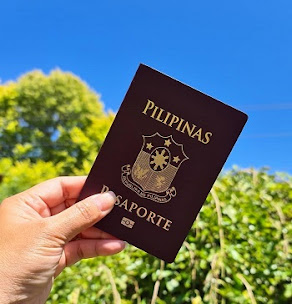Nicknamed “maskne” on social media, mask-related acne is a growing problem. Though acne is a skin concern most commonly seen in teenagers and adolescents, adult acne is on the rise and long-term mask use is part of the problem.
Until we get the coronavirus under control, ditching the face masks isn’t an option. Fortunately, there are simple things you do can do to protect your skin from maskne in the meantime.
Is Mask-Related Acne Real?
Though the word “maskne” has a funny ring to it, this nickname represents a very real concern: mask-related acne. While maskne may be novel to many of us, it is most certainly nothing new. Individuals in the healthcare profession and fields that require the use of facial coverings are well acquainted with the irritation, inflammation, and increased breakouts that comes with long-term mask use.
Mask-related acne has always been an issue in professions where personal-protective equipment like surgical masks and face shields are required. It is only now that the public finds themselves wearing face masks on a regular basis that the problem has come to light.
What Is It, Anyway?
Before you can treat mask-related acne, you need to understand what it is and how it develops. You may be surprised to learn that maskne is simply regular acne confined to the areas of skin typically covered by a face mask. Acne forms when hair follicles in the skin become clogged with oil and dead skin cells.[1] These materials combine to form a plug that can become infected when exposed to bacteria in the skin – this results in acne lesions like comedones, pustules, papules, nodules, and cysts.
Mask-related acne starts the same way – with pores that become clogged with oil, dead skin cells, and bacteria. What makes the difference, however, is that the mask traps humidity against your skin to make conditions more suitable for acne to develop. Friction is another issue. The pressure and friction of wearing a mask against your skin can cause irritation and chafing which may make matters worse.
4 Tips for Treating Mask-Related Acne
While eliminating the underlying cause of the issue – your mask- may seem like the simplest solution to the problem, we’re not quite at the stage yet where that’s an option. You can certainly give your skin a break to breathe when you’re at home, outdoors, or not in proximity with others, but you should still keep it handy and continue to observe social distancing requirements.
Until we get to the point where masks are no longer necessary, here are some simple tips to get your maskne under control:
Wash your face twice daily. At the very least, you should be washing your face in the morning and in the evening. It may help to wash right before or after wearing your mask as well.
●Be mindful about skincare products. Washing your face is great, but you should carefully choose the products you use on your skin. Avoid products that contain alcohol, artificial fragrance, or drying ingredients that might irritate your skin.
●Keep your skin hydrated. Hydration is your skin’s first line of defense, so make sure to pair your daily cleansing routine with a good moisturizer. Use a lightweight moisturizer with SPF during the day and choose a thicker night cream or hydrating mask for nighttime use.
●Use spot treatments as needed. If your breakouts are localized to the area of skin under your mask, you may not need to treat your whole face. Try over-the-counter spot treatments like benzoyl peroxide for blemishes or try a moisturizer made with ceramides to repair the skin’s moisture barrier.[2]
●Take a step back from your makeup routine. Wearing makeup doesn’t necessarily cause acne, but heavy layers of makeup under your mask could clog your pores and prolong healing.
Treating existing maskne is half the battle. Once you get it under control, you should take additional steps to make sure it doesn’t come back.
How to Prevent Mask-Related Acne
Preventing mask-related acne is pretty simple – it’s all about keeping your skin clean and your pores clear. Stick to your daily routine of cleansing and moisturizing to keep your skin healthy. When your skin is clean and hydrated, the natural moisture barrier will help protect against breakouts and other skin issues. Just make sure you’re using non-comedogenic skincare products appropriate for your skin type.
Here are some other tips for preventing maskne:
●Wear single-use surgical or N95 masks as much as possible – if they aren’t available, go with a double-layer reusable cloth mask.
●When using cloth masks, wash them after every use in fragrance-free, gentle laundry detergent.
●After washing cloth masks, hang them up to dry completely before use – it may help to keep several of them around, so you always have a clean one.
●If you have acne-prone skin, consider applying a thin layer of topical antibiotic or acne cream to the skin under your mask before putting it on.
●Look for cloth masks made from soft, natural fabrics like cotton. Choose a mask that fits snugly but isn’t too tight – you want to avoid friction and pressure.
●Give your face a break from the mask about every 4 hours and refresh your skin with a splash of water or alcohol-free toner between uses.
●When you take your mask off for the day, wash your skin with a gentle cleanser and follow it up with a moisturizer to lock in hydration.
Mask-related acne is nothing new but it’s a novel experience for many of us. Fortunately, it’s easy enough to treat and you can even prevent it by taking basic precautions and by following a simple daily skincare routine. Stay safe!
****
[1] What is acne? (August 2020). Retrieved from https://www.niams.nih.gov/health-topics/acne
[2] Benzoyl peroxide. (September 2019). Retrieved from https://www.nhs.uk/medicines/benzoyl-peroxide/


























This is really my problem sis. And I don't even wear a face mask everyday! It's like kung kelan lang ako lalabas, which is about what, once a week? But still, wearing a face mask for just a couple of hours will result in a breakout and it sucks! Very sensitive ng skin ko. Wala na nga akong moisturizer. huhuhu
ReplyDeleteI agree. I am using a cloth face mask which is much better to my skin than the surgical mask.
DeleteThanks for this tips! Problema namin ng sister ko ito, napapansin namin na after namin magsuot ng face mask parang nagkakabreakout kami.
ReplyDeleteHow do you treat them? Hope our little advice will help you.
Delete